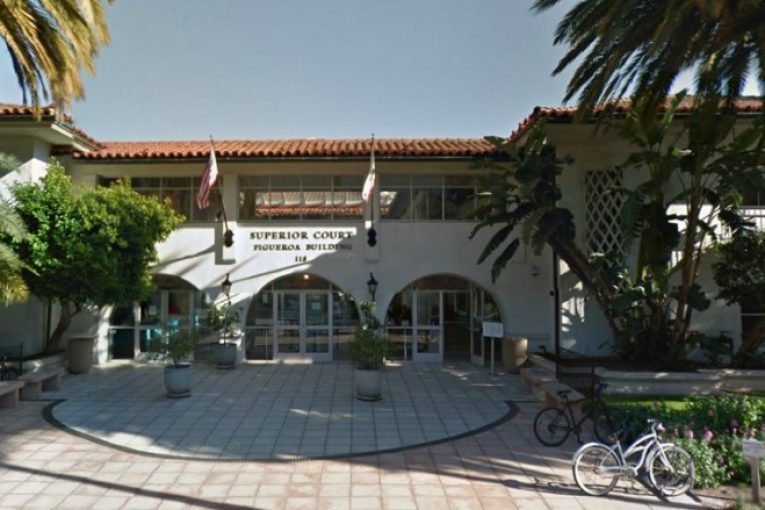
 By Joseph Shepard
By Joseph Shepard
SANTA BARBARA, CA – Assistant Public Defender Richard Addison Steele II and Deputy District Attorney Hannah Meyer argued Tuesday in Santa Barbara County Superior Court’s Dept. 6 about whether or not a defendant charged with domestic violence should be allowed to possess copies of discovery in the case during his trial.
The issue, as DDA Meyer explained, is not whether the defendant should be able to see the discovery at all—which she admitted was his right to do while he was with his attorney—but whether or not he should be allowed to possess physical copies of the discovery with him in his cell.
PD Steele, who spoke in court via Zoom, wished to allow his client to retain the discovery forms while he is incarcerated, claiming that prohibiting him from doing so would harm his own ability to adequately defend his client during trial because, as Steele explained, his clients “seem to spot things” in discovery that would help their case.
Prosecutor Meyer, on the other hand, was concerned with allowing this because she claimed that putting the documents—which have information redacted due to a protective order but still contain some sensitive details—in the defendant’s hands would put a witness at risk.
More specifically, Meyer feared that the defendant in the case would use his gang connection to call a hit on the witness in retaliation.
Steele offered to redact more information from the documents, including names, and rhetorically asked, “How on earth is he going to call a hit without any names?”
He also suggested that his client could simply return the paperwork after the trial was over, and that this would solve the problem because his client “Doesn’t have a copy machine in there,” and would therefore be unable to use it in order to retaliate against the witness.
Continuing his argument, Steele questioned whether or not the defendant would even be able to call a hit on the witness if he wanted to and was given the information, claiming that “gangs frown on domestic violence,” and that “no gangster is going to go do a hit on a domestic violence allegation.”
Steele then cited two cases that he believed offered precedence for allowing his client to have the discovery with certain restrictions.
However, Judge Pauline Maxwell disagreed with his interpretation of the cases, saying “it doesn’t seem to stand for what you just said.”
Steele concluded his argument by reiterating his belief that the defendant had neither the power nor the wish to call a hit on the witness.
But, Judge Maxwell ultimately ruled against him, stating she would review the cases Steele cited, but claimed that she believed that Steele simply sharing his screen with his client on Zoom in order to show him the discovery without actually giving him a physical copy would be enough to constitute disclosure.
Steele, not giving up, requested time for the court to hear a written motion in order to “make a better record,” but Judge Maxwell explained that her availability would prevent this from happening until after the witness testified.
In response to this, Steele accepted that the hearing will have to take place after the testimony, but still insisted that he wanted it to be heard in order to allow the defendant to go over the discovery before he is cross-examined.
Judge Maxwell allowed this, despite not wanting to take up any more time with the jury, and scheduled the hearing for Aug. 17.

